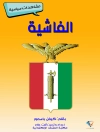In ‘A Treatise on Foreign Teas, ‘ Hugh Smith intricately explores the cultural, economic, and botanical significance of tea across various regions, weaving a compelling narrative that transcends mere commerce. Smith employs a meticulous, observational approach, combining rich descriptive prose with analytical insights, reflecting the burgeoning interest in global trade during the early 19th century. This work situates itself within a broader literary context that includes travel literature and culinary essays, challenging the reader to appreciate tea not only as a beverage but as a symbol of colonial exchange and sociopolitical dynamics. Hugh Smith, a contemporary of the British Empire’s expansion, draws from his experiences in international trade and his fervent curiosity for diverse cultures. His background in botany and economics informed his perspective on tea, positioning him as both a scholar and an enthusiast of this global commodity. The treatise is a product of its time, reflecting an era when tea became a pivotal element in both British society and the global marketplace. For readers interested in foodways, cultural studies, or the historical interplay of commerce and everyday life, ‘A Treatise on Foreign Teas’ is a captivating exposition. Smith’s eloquent prose and insightful analysis make this book an indispensable resource for understanding not only the complexities of tea but also the intricacies of cultural exchange in our interconnected world.
Circa l’autore
Hugh Smith remains an elusive figure in the annals of 18th-century literature, with scant biographical details available in the public domain. Despite the paucity of personal information, Smith’s contribution to literature is preserved in the form of his work ‘A Treatise on Foreign Teas, ‘ which conveys a comprehensive examination of tea varieties popular during his time. Smith’s treatise provides an intriguing glimpse into the cultural, economic, and health perspectives associated with tea consumption. Through his meticulous documentation and analysis, Smith’s scholarly approach to the subject suggests a background in either the mercantile trade of commodities or a scientific curiosity about botany and its implications for health. While Smith’s literary style does not align with the more florid prose common during his century, it reflects the emergence of a more empirical manner of writing, concerned with facts and observations over embellishment. Without more biographical substance, it is challenging to situate Smith within any particular literary movement or community of writers. Nevertheless, his work stands as a testament to the specialized knowledge and intellectual concerns of his era, likely contributing to the period’s collective understanding of imported goods and their impact on society.












